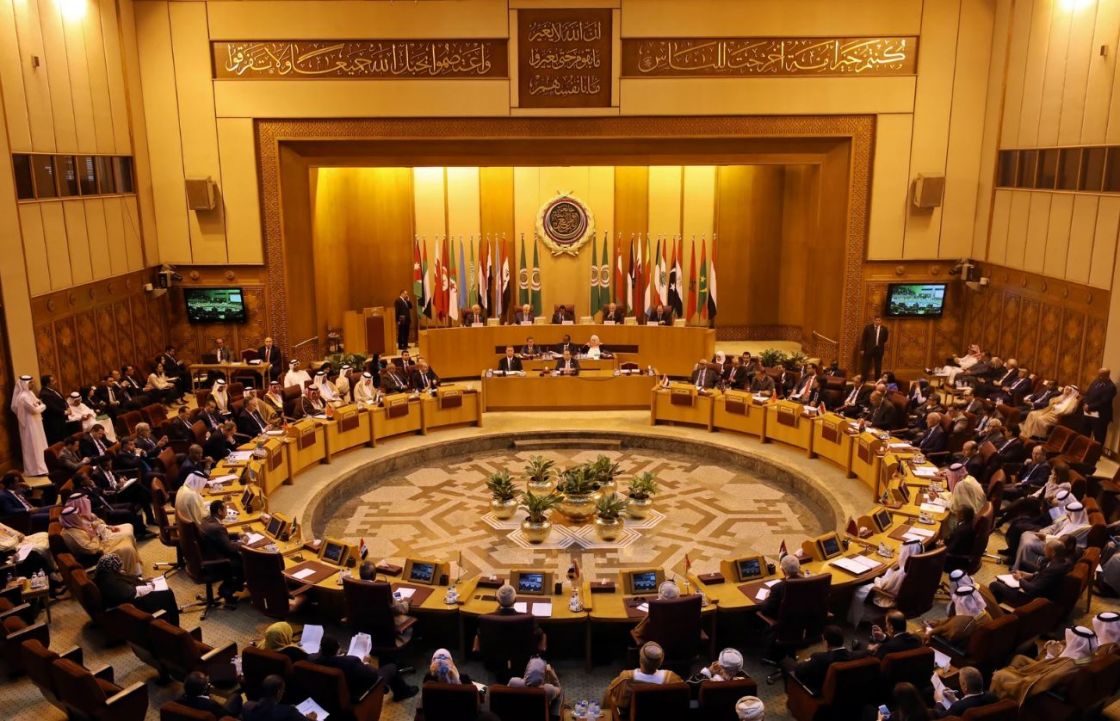- Editorials
- Posted
Kassioun Editorial 1121: Despite the Obstacles, Things Are Moving…
The Arab foreign ministers decided, in their consultative meeting in Cairo, today, Sunday, May 7, to repeal the suspension of Syria’s membership in the Arab League, and for its delegations to resume participation in the meetings as of the date of the decision. This is taking place in parallel with preparations for the quadripartite meeting of the foreign ministers of Syria, Turkey, Iran, and Russia in Moscow in the coming days.
It was particularly noticeable in the statements of a number of Arab ministers, their emphasis on a political solution in Syria in accordance with UNSC Resolution 2254, including the statement of the Egyptian Foreign Minister, in which he said: “The Syrian government bears the main responsibility for reaching a political solution, as well as the patriotic forces”.
Repealing the suspension of Syria’s membership in the Arab League is an important and necessary step towards ending the Syrian crisis, for the following main reasons:
First: Suspending Syria’s membership was from the outset a decision against the interest of Syria and Syrians, because it formed a necessary prelude towards the internationalization of the crisis, thus prolonging it, making it more complex, and greatly increasing its costs and losses.
Second: Suspending the membership, in parallel with forming the Western-led group at the time, or so-called “Friends of Syria”, was intended to shut the door on a political solution and open the door to war, by withdrawing recognition of one of the two sides to the crisis, i.e., the Syrian regime. This was intentional, because any political solution is founded on recognizing all its sides and that negotiation between them leads to a solution, in contrast to what actually happened with the West’s encouragement.
Third: Syria’s return to the Arab League in parallel with completing the Syrian-Turkish settlement, both of which are linked a political solution progressing, is the practical recipe for breaking the blockade, Western sanctions, and Western extortion. Therefore, it is a recipe for draining the “quagmire”, leading to expulsion of all foreign forces in parallel with the solution.
This position atmosphere that is forming at the regional and international levels with regard to Syria, is not trouble-free, nor is it devoid of attempts to undermine it or at least obstruct it. Among these attempts the following can be noted:
First: The behavior of extremists in both the regime and the opposition, who are trying to impede the efforts of both Astana and the Arab countries to move towards settling Syria’s situation and its regional and international relations, in parallel with the start of the warranted political change process, which should be by the will, by the hands, and in the interest of the Syrian people.
Second: The behavior of some Arab agents of the West and the Zionist entity, who are trying to divert the settlements currently underway from their path towards renewing the polarization between the Western small group and the Astana group, through tricks that aim to assign the Arabs the role of the Western small group, by playing roles against Astana, and in the interest of the West and the Zionists. The ones most obviously playing these roles are precisely those countries that played the role of advertisers for the disgraceful agreements – the Abraham Accords and the myth known as the Arab NATO. Those two are the two projects neither of which has any prospects, not only by virtue of the emerging international balances, but also by virtue of the improvement of the inter-regional atmosphere in the entire region, especially between Saudi Arabia and Iran via Chinese mediation, in addition to the improvement of relations of the main Arab countries with Turkey, against the will of the West, and towards broader cooperation within frameworks even more important than those of BRICS, Shanghai, and OPEC+.
Third: The Jordanian threat of military action inside Syria under the pretext of combatting drugs seems like a last resort that the enemies of the political solution in Syria are considering to re-ignite the war and reactivate the US-British military presence in Syria, especially at the al-Tanf base. It is well known that drugs cannot be dealt with through military action, but rather through political and economic action, the first step of which would be to put an end to the crisis in Syria. In fact, a supposed action of this kind would be a dilemma not only for Syria, but also for Jordan, which itself is targeted in light of the major developments taking place in the Palestinian cause and the crisis of the Zionist entity.
In conclusion, and despite all the obstacles, the process is moving towards the implementation of UNSC Resolution 2254 to solve the Syrian crisis in a real and effective manner. Completing this requires more insistence to reach a Syrian-Turkish settlement and clear cooperation between Astana and the main Arab countries to achieve a political solution, in parallel with blocking the path before the Zionist entity and its agents and their tricks, regardless of the disguises they put on.


